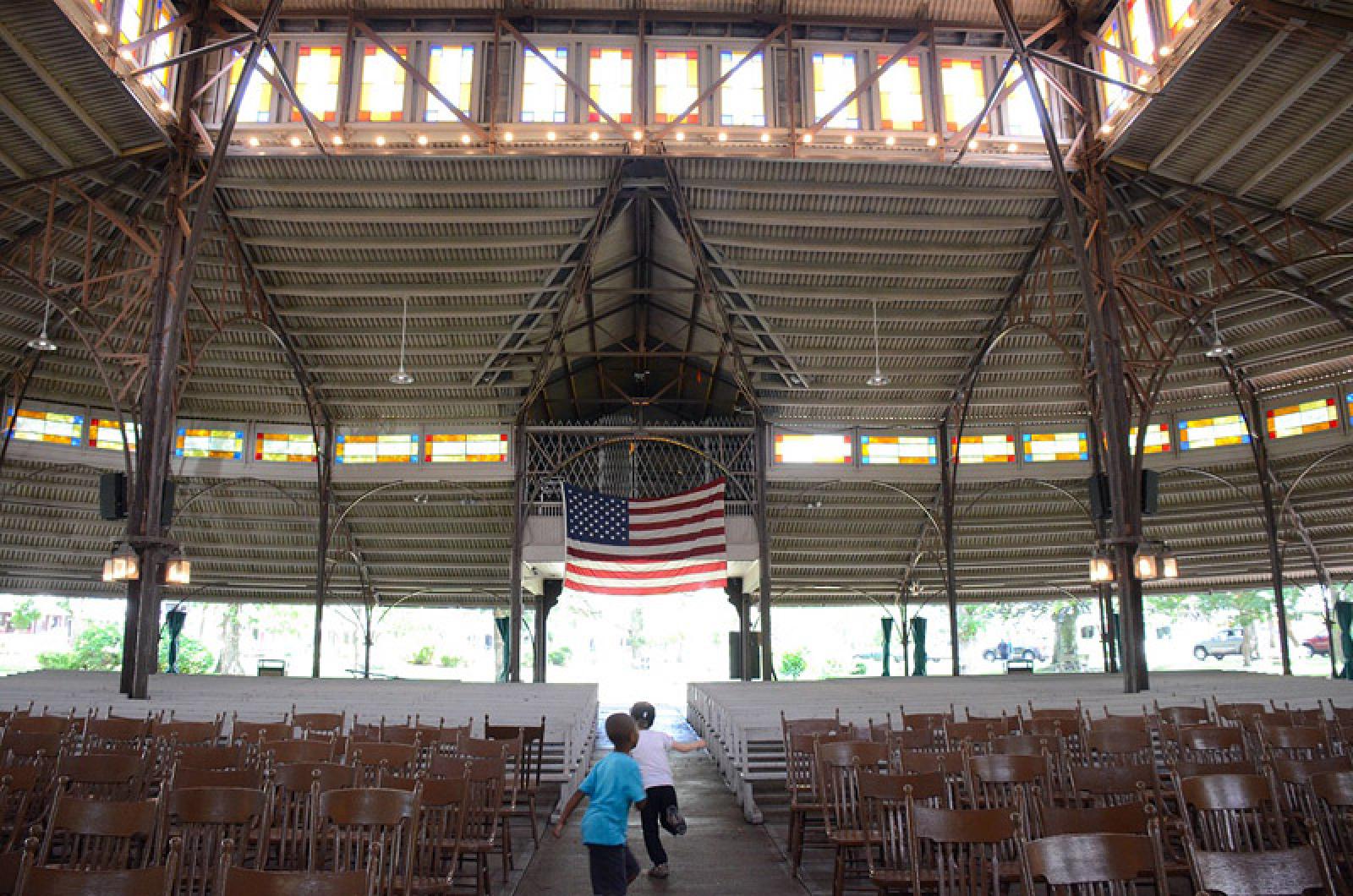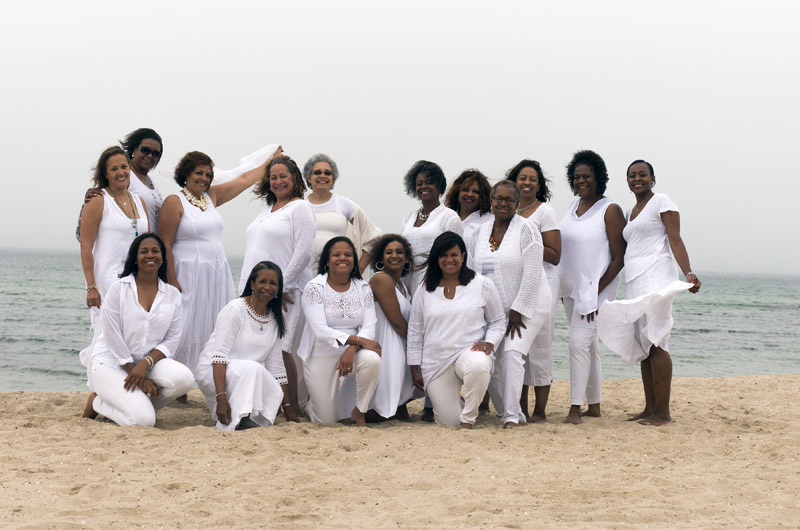Conversations about race in America have been happening for a long time, as President Obama pointed out in his eulogy last week for Clementa C. Pinckney, the slain pastor of the Emanuel African Methodist Episcopal Church in Charleston, S.C.
“We talk a lot about race,” Mr. Obama told the nearly 6,000 people gathered at the College of Charleston and a much larger audience watching and listening on televisions, radios, computers and cell phones around the world. “There’s no shortcut. And we don’t need more talk.” But he added: “It would be a betrayal of everything Reverend Pinckney stood for, I believe, if we allowed ourselves to slip into a comfortable silence again.”
Events in the last year, including the massacre of nine parishioners at the AME church in June, have shaken many awake to the depth and persistence of racism in America.
The Vineyard may seem far removed from racial violence, but has not been a silent observer in the struggle for equality. Every summer people from around the country gather in old churches, town halls and other public spaces here to continue the civil rights discussion.
This week, Union Chapel in Oak Bluffs began its season with a series of guest preachers that will include the Rev. Dr. Patricia Havis of the Central Christian Methodist Episcopal Church in Detroit, and the Rev. Deborah Finley-Jackson, associate minister at St. Marks AME Church in Jackson Heights, N.Y. Former Massachusetts Gov. Deval Patrick will preside over the service on Sunday.
Several African-American leaders and thinkers with ties to the Vineyard spoke to the Gazette this week about racism in America, helping place the present conversations in a broader context and envisioning the road ahead.
“This is America’s most enduring challenge,” said Charlayne Hunter-Gault, a veteran journalist who participated in the civil rights movement in the 1960s and covered urban African American communities for the New York Times. Echoing Mr. Obama’s statements, she added that while people may pay attention when an outrageous act comes to light, the conversation invariably fades. “There is no consistency in the discussion,” she said.
She compared present conditions to those in 1967 after race riots had broken out across the country. She noted that a commission formed by President Lyndon B. Johnson concluded that the media was largely responsible for the surprised reaction, since news agencies had not been covering the full spectrum of society. “We see that again today,” Ms. Hunter-Gault said.
Quoting one of her professors at the University of Georgia (where she was one of the first two African-American students in 1971) she said: “We learn from history that we do not learn from history.” Ms. Hunter-Gault recently began work on a PBS series looking at solutions to the race problem. The first episode, a conversation with mayor Joseph P. Riley Jr. of Charleston, aired in June. Future topics may include microaggressions on college campuses and in high schools, racial segregation in housing, and the role of the media.
The series so far has affirmed her conviction that America’s problem with equality stems from a lack of education. “Time after time people tell me that it’s because there is segregation from birth to the grave,” she said. “Young people don’t grow up knowing one another and that’s how they get involved in this thinking that is so destructive.”
In the days after the Charleston massacre, Ms. Hunter-Gault visited the AME church, where a crowd of white and black citizens had gathered outside to show their solidarity for the victims. Many had brought their young children with them. “Those kids are going to get a message from that,” she said.
Robert Hayden, author of African-Americans on Martha’s Vineyard and Nantucket, noted that “faith has always been the bedrock” of the African-American community. He saw that faith at work in the compassionate response of the family members of the AME victims, who publicly forgave the alleged shooter. “There has always been a quiet faith, a quiet prayer, and that’s not going to be shaken,” he said.
More than anything, Mr. Hayden hoped the present conversations would not leave young people in the dark about the country’s past. “I’m very much concerned about our young people,” he said. “That they have a chance somehow to know what happened in the past and understand where we are today.”
In some ways, the conversations about race are reaching young people as never before. The Rev. Raphael Warnock, pastor at the Ebenezer Baptist Church in Atlanta, Ga. and a regular summer preacher on the Vineyard, traveled to Ferguson in the wake of the shooting of Michael Brown to protest police violence. “The energy of the young people around this issue was palpable,” he said. “I have seen an activism among millennials that we had not seen prior to this moment. That for me is an extremely hopeful sign.
“No one has to explain it to them. It’s not in a history book. It’s their lived experience.” Before the internet, smart phones and social media, he added, such incidents would easily have been explained away: “There are communities in our country who live this experience every day. And now other people can see it,” Mr. Warnock said.
Mr. Obama himself has played a key role in keeping public attention on the race issue, said Ed Redd, a retired Boston judge and seasonal Island resident: “I think this is the first time you’ve had a president of the United States that has the authority to use the bully pulpit, if you will, to make sure it becomes a national discussion.” Whether as a result of the media or Mr. Obama’s leadership, he said, people are seeing racial incidents in a new light.
But much of the attention surrounds the blatant disregard for African-American lives, Mr. Warnock said. “I don’t think the media is eager to talk about race,” he said. “We are talking about it because it’s unavoidable in this moment.” Racism is the elephant in the room, he added, and the shootings of unarmed citizens by police officers and other tragedies can’t be ignored.
In three high-profile cases last year, grand juries decided not to indict the officers involved. But Judge Redd, who worked on civil and criminal cases during his career and also helped desegregate Boston public schools in the 1970s, was not surprised by the decisions. As a judge, he said, you learn to gather all of the information. “The law for the most part is very objective,” he said. “You have to observe the demeanor of each witness. You have to weigh the evidence.”
He believes inequalities in the American legal system had more to do with interpretations of the law than with the law itself. As one solution, he called for more black and Hispanic judges who would help represent a larger portion of society. He also sees the need for more diversity in American police departments.
“For the most part, the Vineyard is not really representative of the larger society,” Judge Redd said. “If you are here on the Vineyard, then that’s the acceptance: You’re here, I’m here.” While there may still be some isolated social circles, he said, the Vineyard provides a unifying experience. He is the former president of the Boston chapter of the NAACP and sometimes participates in the summer forums and lectures. But he noted that those events are often aimed at the initiated. “The people that come to the Vineyard are generally more enlightened,” he said.
Ms. Hunter-Gault said her own diverse circle of friends on the Island comes together naturally. “But if people are having their social life with just one race or just one socioeconomic level, that tells you there is something here we have to work on,” she said.
As a new twist this summer, the Hutchins Center for African and African-American Research at Harvard will host a panel discussion composed entirely of young people, to investigate their attitudes surrounding current events and the civil rights movement. The session titled Black Millennials: They Rock, But Can They Rule? will take place August 20 at the Old Whaling Church in Edgartown. Last year’s forum explored various criticisms of Mr. Obama in the context of race.
“In the next 30 years or so this country is going to flip, and it’s going to have a majority people of color,” Ms. Hunter-Gault said. “So we need to begin to talk to these younger people, who will be in positions of leadership, about how they see America and how they see it prospering and how they see it fixing problems like racism.”
Referencing the preamble to the U.S. Constitution, she said, a conversation about race may not solve the problem, “but it could conceivably help us towards a more perfect union.”









Comments
Comment policy »